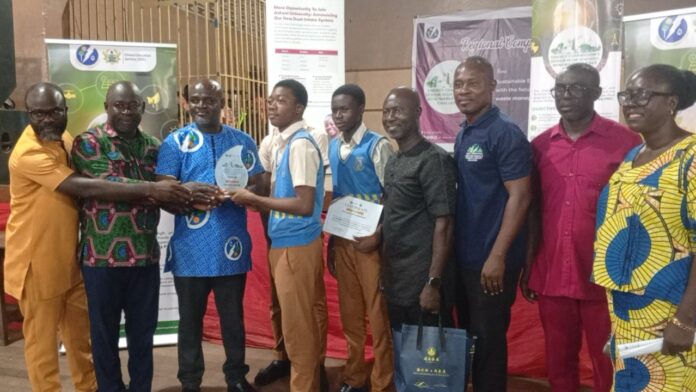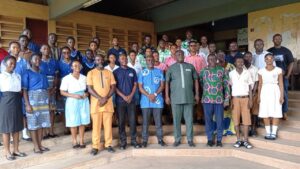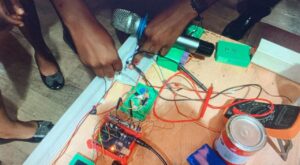Senior High Schools in the Ashanti region, with support from the Energy Commission, are producing innovative projects with locally available materials to solve societal problems.
Over the years, the students have come up with innovative projects like the solar dehydrator and five-in-one mechanized agricultural tractor, under the Energy Commission’s SHS Renewable Energy Challenge.
Senior Manager, Renewable Energy, Julius Nkansah Nyarko, says the Commission and the Council for Scientific and Industrial Research (CSIR) have put measures in place to refine such student products for patent approval for their use.
When patent approval is granted, local and foreign investors can support to innovate in mass quantities for farmers and to generate income to support various schools that come out with such innovations.
This year, the focus of the Challenge is on using sustainable energy for health delivery, food security, and waste management.
“We know that these critical areas affect the economy of every country and everywhere in Ghana now, there’s an issue of flooding and some of the causes are of the way we dispose of our waste, and we believe our brilliant youth can come out with innovative projects to solve our waste menace,” said Julius.
Ten out of 15 schools who picked nomination forms were engaged in the competition to showcase their projects in the 6th edition.
The Challenge is designed for senior high schools to develop their critical thinking abilities and come out with practical solutions to challenges facing the country.
Head of the Inspectorate Unit at the Regional Education Office, Hannah Amponsah, observed some schools are challenged with resources which limit them in applying for nomination.
She, however, urged school heads to support their teachers and students to take part in the competition.
” This is the area that they can exhibit what they have to the world,” she noted.
Out of the 10 schools who competed on their innovative projects, Opoku Ware School took the 1st position with 83.3 points, Obuasi Technical School took the 2nd position with 77 points, and Yaa Asantewaa Girls SHS came 3rd position with 72.2 points.
Opoku Ware SHS worked on a project called ‘Smart IoT Aqua System’, designed to improve the survival rate of catfish through smart monitoring, contributing to sustainable aquaculture.
Team member, Nana Obeng Acheampong stressed that they faced challenges throughout the process, but they were able to overcome them.
“We faced many challenges but learnt a lot. We’re happy about the win and will refine the system further based on the judges’ comments,” he asserted.
The Energy Commission’s focus on practical innovation is paving the way for a generation of problem-solving students who are not just studying science but shaping the future with it.





